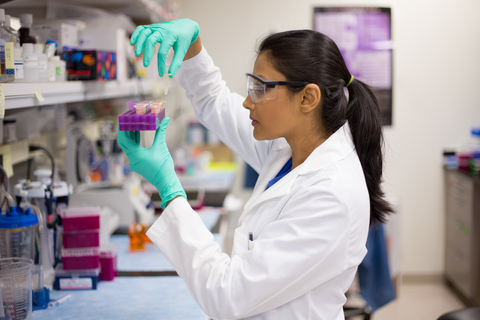Aspirin could play a role in treating cancer

Regular use of aspirin could help in the treatment of some cancers, according to a new review of seventy one medical studies.
Cardiff University reports the systematic review, which looked at the survival of one hundred and twenty thousand people with cancer who took aspirin, compared with four hundred people who didn’t, showed that at any time following the diagnosis of some cancers the proportion of people who were still alive was 20-30% greater in those taking the drug. The spread of cancer to other parts of the body was also substantially reduced in people taking aspirin.
Peter Elwood, Honorary Professor at Cardiff University, who directed the study, said “The use of low-dose Aspirin as a preventive in heart disease, stroke and cancer is well established but evidence is now emerging that the drug may have a valuable role as an additional treatment for cancer too.”
One of the colon cancer studies the researchers looked at suggested that a non-diabetic man of about sixty five who takes aspirin would have a prognosis similar to that of a man five years younger who doesn’t take aspirin. For a woman of similar age with colon cancer the addition of aspirin could lead to a similar prognosis of a woman four years younger.
Almost half the studies included in the review were of people with bowel cancer, and most of the other studies were of people with breast or prostate cancer. There were very few studies of people with other less common cancers, but on the whole the pooled evidence for all the cancers is suggestive of benefit from aspirin.
However, all the evidence of benefit is limited. It comes from observational studies of people who took aspirin for reasons other than the treatment of cancer, and not from appropriate randomised trials designed to test aspirin and cancer. The evidence is also not entirely consistent, with a few of the studies failing to detect benefit attributable to aspirin. More evidence is therefore urgently needed. A number of new randomised trials have been set up, but these are unlikely to report for quite a few years.
The issue of bleeding was examined carefully in the review. Information on bleeding was requested from an author of each of the seventy one reports and replies were received from thirty one authors. Very few people had serious bleeding. Among those who had, the proportion of people taking aspirin who had a “serious” bleed was no greater than the proportion of people not taking aspirin who had experienced a “spontaneous” stomach bleed due to causes other than aspirin. In two studies a very small number of fatal stomach bleeds had occurred, but again the proportion was no greater in the people taking aspirin than in those who didn’t.
Peter Elwood said “Patients with cancer should be given the evidence now available and be helped to make their own judgement of the balance between the risks and the benefits of daily low dose. Evidence from further studies is urgently required, and patients should be strongly encouraged to participate in appropriate research studies. All patients should consult their GP before starting new medication.”
The research is published in Plos One Medicine.








